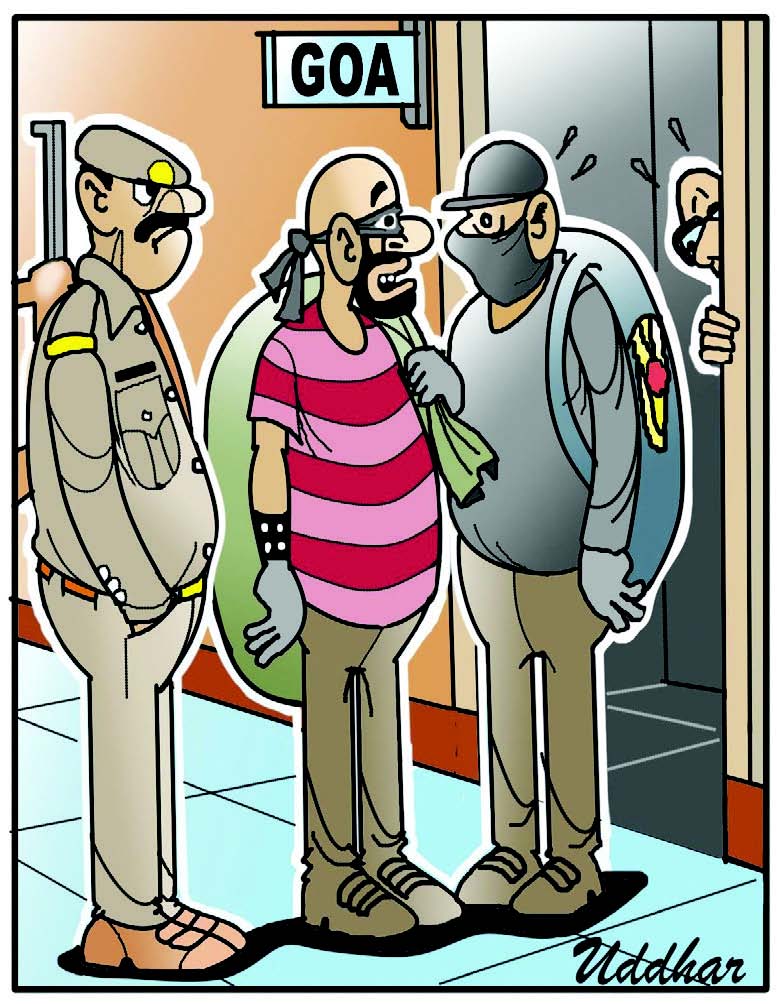
It is time that those who have powers over people’s destinies realise the relationship that sons and daughters of the soil, have with their soil. The phrase ‘sons of the soil’ is not an ordinary one. It defines the link between those born in the land with their lands.
It is an identity that defines generations of families and irrespective of where they move for different lives and careers, it is the soil of their home that brings them back, to the same place. For those who stay and live by working on their lands, the relationship is linked to their day-to-day lives, their bread and butter, and their existence. Their land is their job and their business; it is also a saving for their future.
But that relationship and identity are changing. And this is why:
The land losers are never beneficiaries of “public purpose”
The Land Acquisition Act has a phrase that is broad-based and always used to the advantage of the land taker. That phrase is ‘public purpose’. This purpose is always achieved by often taking away the rock and shelter of people’s lives, and their land, to build monuments of modernity, for the so-called large public purpose.
Projects for public purposes are decided by those in power. But does each decision pass the test of being beneficial to the people or is it a fulfillment of desire and greed, unrelated to the purpose of public good?
If it is the former, then the entire system gears itself up to facilitating projects by managing anything that can come in the way, through the process of public hearings, NOCs, licences, and clearances, which finally lead to land acquisition and construction.
This is now called “development”.
But no one will come to Goa if Goa becomes another Andheri in Mumbai
If rampant construction, tall buildings built on narrow roads with no parking is the order of development then Goa will become another Andheri, in Mumbai, a disjointed web of concrete. Will anyone come to Goa then?
Development as a concept cannot be opposed by anyone including us, but it has to be linked with the needs and well-being of the people on whose lands this development is taking place. Development that alienates people, changes the skyline and look of the land, destroys fields and water bodies and hill slopes, and reduces the quality of life, is antithetical to development.
Development has no meaning if it has to be done by hurting and bulldozing without compensating what land losers want and on time. Every major people’s movement starts with a sense of loss and a feeling of unfairness. Only when this goes can a State begin to think that it is truly on the path to people’s development and not the kind we see today.
But can the towers of modernity be built on a bed of tears?
Is anybody whose land has been acquired happy?
How many voices are there, among lakhs whose lands have been lost to “development” which say that their current lives are an improvement from the past when they were custodians and masters of their own land? Can the towers of modernity be built on a bed of tears of original landowners and users?
The farmers, who live around the area where the link road to the Mopa airport is built, saw their age-old priceless cashew trees bulldozed cutting their livelihoods to shreds. The community lived off the produce of those trees; they sent their children to school. One mother screamed in anguish when Herald reporters met her “How will I pay my daughter's school fees and eat?” Can we allow any mother to cry like this?
Should the powerful feed their families on the tears of the poor?
These are powerful and control the system. During elections, they control votes making them purchasable. And since that is done, the need to go back and seek consensus for actions is not felt anymore. The unfairness of this is clear. Those who need compassion and empathy from the system when they lose their futures, get none from the system. Their fields are gone, their trees are cut and they bathe in rivers of tears.
And who benefits? The powerful control the system. Their pockets are full and they take their wealth home, leaving the homes of others destroyed
While States and cities need to grow and cater to increasing population, very often as we have seen with railway double tracking in South Goa and through the Mollem forests, the ultimate purpose is to create infrastructure for larger economic activity for the state and business infrastructure of companies that manufacture and transport like coal, or steel or real estate. The benefits of that added infrastructure, for which ancestral lands and sources of livelihood, are seldom or never enjoyed by those who are literally giving up their way of life, their earnings, and their identities.
Does the system have the right to enter their lands, and tell them that they have no choice but to give it up for public purpose which they don’t decide because that is the law? And yet you deny them adequate, just, and timely compensation, in the tune and manner that their lives are, at least economically, better off?
If we look at the template of compensation, the compensation giver (the government) and the compensation receiver (the land loser) look at the transaction through very different eyes. For the giver, it is a need that has to be fulfilled. The compensation process starts as per the land acquisition act. Significantly the land acquisition process is never held up, even when there are issues over the pace and quantity of compensation or with regard to issues like title ownership. Discrepancies go to court and lie there for years.
In fact, the High Court (not Goa) in an order concerning the Railways, which does acquire a lot of lands, (as in the case of double tracking in Goa) made it clear that before taking over possession of the land, the Central government has to deposit compensation with the competent authority, and as soon as the deposit is made, the competent authority shall make the payment to the person(s) entitled. However, a period of sixty days is prescribed for surrendering or delivering possession of the land.
One thing is common to most cases: At the time their lands are taken, people are uncertain and confused about their future
People deal with two phenomena during land loss due to acquisition. One is a sense of absolute loss and emotions and the other is the shock of not knowing when alternate lands, housing, and money would come. And this for no fault of theirs and without any natural calamity or disaster.
The talking away of land has one trigger- greed, which is always hidden by the ‘development’ narrative
There is another role that original and traditional landowners play. Goa has always been an agrarian State and its economy has been agrarian. The face of Goa, through rampant land conversions and misuse, has changed because the usage of land has shifted from agrarian purposes to commercial and infrastructural purposes, taking away (almost grabbing) the land from traditional landholders, mainly through the acquisition of highways, roads, airports factories and so on.
The biggest fallout of land acquisition, therefore, is the manner in which the agrarian nature of Goa’s land and economy has been destroyed. This is due to greed
The approach to any land acquisition has to be compassion. You are dealing with people, not acres and square metres
Therefore, the approach to any land acquisition has to be humane. Compassion is key. People are not numbers and land acquisition is not about statistics. There are souls that belong to every inch of land they acquire, there are families, and there are long pasts and futures.
A State can be proud only if people who give up and sacrifice, for decisions that they don’t take, are ultimately happy. Tears cannot be bricks of development.
